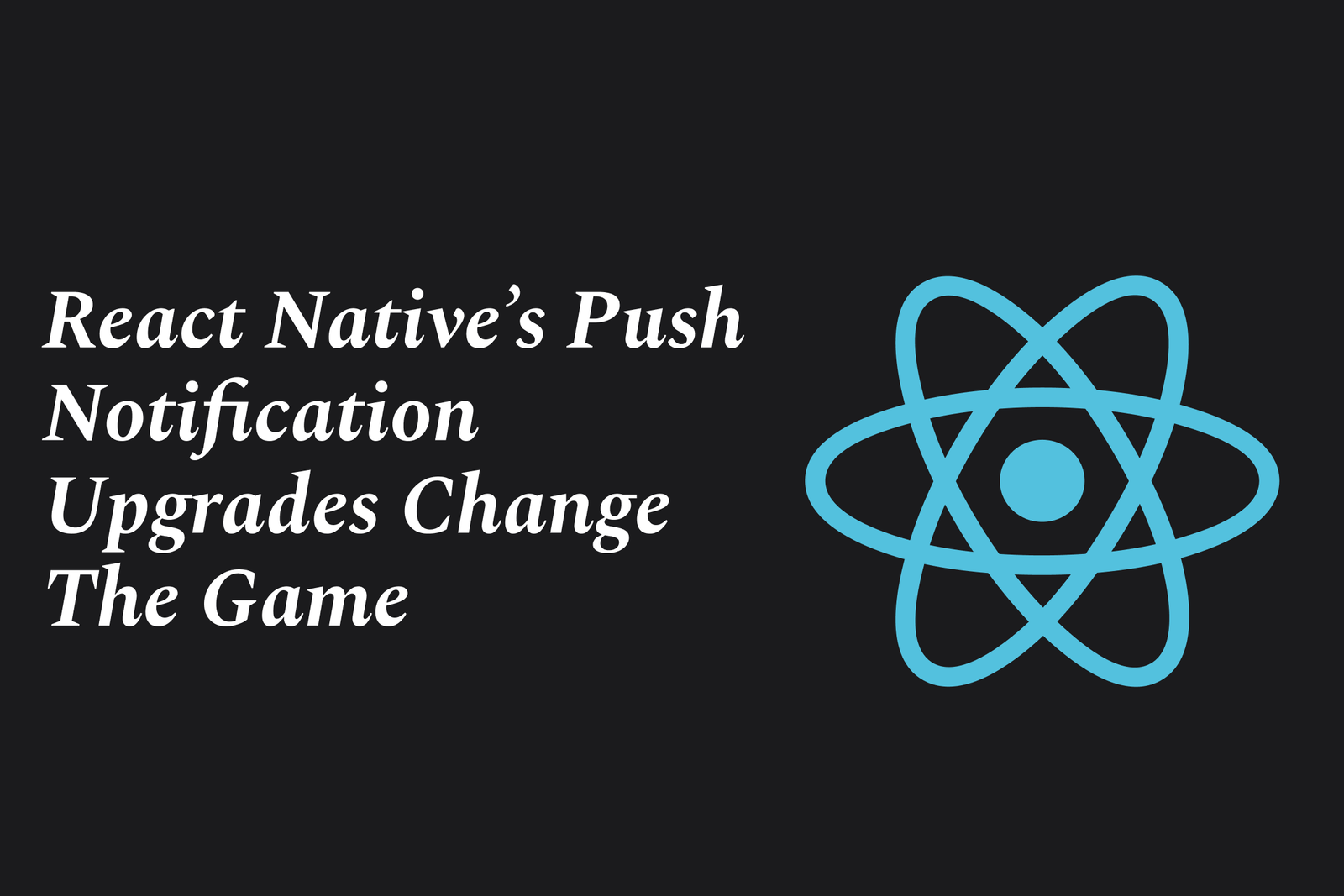React Native?S Push Notification Upgrades Change The Game
React Native’s push notification upgrades, powered by the enhanced expo-notifications API, simplify handling notifications across iOS and Android. They enable seamless token management, customizable alerts, scheduling, and improved app interaction, transforming how developers engage users.
React Native’s Push Notification Upgrades Change The Game
1 ) Overview of New Push Notification Features in React Native
React Native, through the `expo notifications` library, now offers robust APIs for managing push notifications including fetching device push tokens, presenting, scheduling, receiving, and responding to notifications.
These improvements enable scheduling one off and repeating notifications, managing app badge counts, listening to notifications and user interactions whether the app is in foreground or background, and customizing Android notification channels.
2 ) Key Functional Enhancements
Ability to obtain native device push tokens (FCM for Android and APNs for iOS) and Expo push tokens.
Advanced notification handling such as imperatively dismissing notifications and setting custom notification icons and colors on Android.
Enhanced listening capabilities to handle notifications seamlessly in various app states.
3 ) Platform Notes and Requirements
Push notifications in Expo Go on Android (from SDK 53 ) require a development build, as push notifications in Expo Go are no longer supported; however, local notifications are still available for testing.
Testing push notifications requires a physical device as they do not function in emulators or simulators.
4 ) Installation and Usage
Developers can easily install `expo notifications` using `npx expo install expo notifications`.
Proper configuration is essential, including setting up credentials for push notification services and integrating the config plugin.
Example usage with code snippets demonstrates how to register for notifications, obtain tokens, and handle incoming notifications with custom behaviors.
5 ) Significance of the Upgrades
These enhancements significantly simplify the complexity of handling push notifications across platforms in React Native apps.
They provide developers with better control and flexibility, improving app engagement and user experience.
The upgrades enable building modern apps with reliable push messaging services and tailored notification behaviors.
Summary
React Native’s latest push notification upgrades, primarily via Expo’s notifications API, represent a game changing evolution. They empower developers to implement sophisticated notification features with ease, ensure improved compatibility and control, and enhance overall app interaction through timely and personalized notifications on both Android and iOS platforms.
https://justacademy.in/news-detail/react-native-zero-to-hero:-what?s-new-for-beginners-in-2025
https://justacademy.in/news-detail/android-system-diagnostics-tools
https://justacademy.in/news-detail/dart-pub-trends-in-2025
https://justacademy.in/news-detail/flutter-ai-chatbot-integration-guide
https://justacademy.in/news-detail/best-flutter-practices-every-developer-should-follow
Related Posts
Java supports GDPR and data privacy by enabling secure data handling through encryption, controlled access, and precise data management. It allows developers to minimize PII exposure, ensure data confidentiality, and design workflows that comply with data protection regulations effectively.
Java code quality tools have evolved to include advanced static analysis, integrated security checks, and AI-powered code reviews. These updates help developers detect bugs, enforce coding standards, and enhance security, streamlining the development process and improving overall code reliability.
Java remains a cornerstone in big tech companies, evolving with modern features like records, pattern matching, and virtual threads. Its robust ecosystem, enhanced performance, and growing AI integrations keep it vital for both legacy systems and innovative new projects.
Java and CI/CD pipeline optimizations streamline Java application development by automating builds, tests, and deployments. They improve efficiency through parallelization, caching, and secure secrets management, enabling faster feedback loops and more reliable, scalable software delivery.
Java supports modern cryptography standards through its flexible Java Cryptography Architecture (JCA), enabling integration of advanced algorithms like AES, EdDSA, and post-quantum tools. Libraries like Bouncy Castle offer FIPS-certified, hardware-accelerated implementations for secure development.
Java 23 enhances record patterns by enabling concise, direct destructuring of record components within pattern matching, simplifying type checks and data extraction. This improvement boosts code readability and expressiveness by reducing boilerplate in handling immutable data classes.
Java remains a top choice for mobile app backends, powering scalable, secure, and high-performance server-side solutions. Latest trends include cloud-native microservices, reactive programming, and enhanced JVM optimizations, enabling efficient, flexible, and robust mobile backend development.
Java SE 24 and LTS Java SE 21 offer enhanced features and performance, while Apache Spark 4.0.0 introduces Scala 2.13 support and advanced ML and SQL capabilities. Together, they empower developers to build scalable, high-performance data applications with modern tools.
JUnit 5 modernizes Java testing with a modular architecture, improved assertions, and seamless Java 8+ support. Beyond JUnit, tools like Mockito and AssertJ enhance mocking and assertions, creating a powerful, flexible ecosystem for writing clean, efficient Java unit tests.
Java plays a pivotal role in cloud automation tools by providing a robust, platform-independent language used to build scalable automation frameworks like Jenkins and Selenium, enabling efficient CI/CD pipelines, testing, and orchestration across diverse cloud environments.










